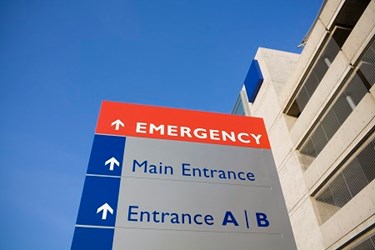Device Makers Ramp Up Guarantees To Win Hospital Bids

By Christine Kern, contributing writer

Manufacturer guarantees are going to be tied to trackable health outcomes.
By Christine Kern, contributing writer
As competition for hospital business stiffens, a number of medical device manufacturers are enhancing guarantees to compensate hospitals if their devices don’t perform as expected, Reuters reports. Although the details of the guarantees are still being finalized, Reuters reports they will be tied to trackable health outcomes according to hospitals and manufacturers.
According to Mass Device, Medtronic and St. Jude Medical are among those offering the new guarantees which include an offer to share the cost of follow-up treatment related to their heart devices. Medtronic’s guarantee states that performing procedures with Tyrx, a mesh sleeve that surrounds a cardiac implant with antibiotics, will produce lower infection rates than those that do not use the device. If it doesn’t, Medtronic pledges to cover the costs of treating the patient’s infection.
Meanwhile, St. Jude’s promises to rebate 45 percent of the price for a Quadra heart rhythm device to cover revision surgery required in the first year after implantation due to problems related to its Quartet lead.
“It’s a big shift,” Susan DeVore, chief executive of Premier Inc., which represents 3,400 hospitals in negotiating supplier contracts, told Reuters. “Device manufacturers that are responding to that discussion are the most progressive ones, who see the world is changing.”
The move comes as medical device manufacturers are seeing sales slump with increasing competition in the marketplace. Meanwhile, hospitals are still pushing for more robust performance guarantees, including covering surgery costs if a device needs replacement. Some view the new guarantees as the first step for manufacturers to share more of the financial risk of procedures.
“We are really doing this to promote a technology and a benefit that we know exists, to remove any doubt and to speed up market acceptance,” Medtronic CEO Omar Ishrak said. “Risk-sharing in our commercial transactions is going to be an increasing component going forward.”
With greater emphasis being placed on improving patient outcomes and reducing readmissions and complications, hospitals are facing increasing pressure to account for unsuccessful procedures, which is leading in turn to healthcare providers pressuring device-makers for greater accountability.
“They [device makers] are taking a little bit of ownership with us in getting that operation done and getting that patient successfully through the recovery,” said Dr. Michael Schlosser, a neurosurgeon and chief medical officer at HealthTrust, which is owned by a subsidiary of HCA.
